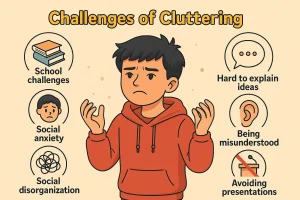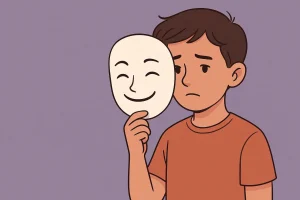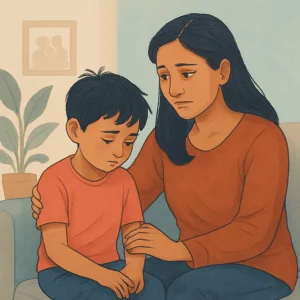How to Improve Your Child’s Language Skills with WH Questions
By Rajini D
Last Updated: February 5, 2025
Welcome to the essential guide on using WH questions—Who, What, When, Where, Why, and How—to boost your child’s language skills. These foundational tools are crucial for fostering curiosity and enhancing understanding. At Wellness Hub, we provide easy-to-use resources that make learning through conversation both fun and impactful. Dive into how WH questions can transform your daily chats into rich educational experiences, helping your child thrive in communication. Let’s get started!
Understanding WH Questions
WH questions—Who, What, When, Where, Why, and How—are crucial tools in learning language. They help children form more detailed responses and encourage them to think deeply about their answers. Learning to use these questions aids in developing a rich vocabulary and complex sentence structures.
Mastering WH questions is essential for a child’s cognitive development. It boosts their ability to think critically and understand the world better, which is vital for their success in school and social settings.
Also read: How to Teach WH Questions to Kids at Home – Fun & Easy Tips!
Key Benefits of WH Questions for Language Skills
Enhances Vocabulary
- Introduces New Words: WH questions like “What is this?” or “Who is that?” introduce children to new words and concepts, expanding their vocabulary.
- Contextual Learning: These questions help children connect words to their meanings through real-life contexts, making the learning process natural and intuitive.
Improves Sentence Structure
- Complex Responses: WH questions require more than yes-or-no answers, prompting children to construct full sentences.
- Grammar Practice: Regular use of WH questions improves grammatical skills as children learn to arrange words into correct and complex structures.
Encourages Curiosity and Engagement
- Stimulates Curiosity: Asking “Why does this happen?” or “How does that work?” sparks curiosity about the world.
- Interactive Learning: These questions encourage children to interact with their surroundings, transforming learning into an active, engaging process.
Effective Techniques to Teach WH Questions
Simple Start: Introducing Basics to Young Children
Starting with WH questions can be simple and fun. Here are some tips to introduce these questions to toddlers:
- Use Everyday Objects: Begin with objects around the house. For instance, point to an object and ask, “What is this?” or show them a picture of a person and ask, “Who is this?”
- Repeat and Expand: Repetition is key. When your child answers, repeat their answer and add more information to expand their understanding.
- Visual Aids: Use books with bright pictures or flashcards to make the learning visual and engaging. Ask questions about the images to practice the WH forms.
Interactive Learning Activities
Engaging activities can make learning WH questions exciting. Here are some ideas from mywellnesshub:
- Question and Answer Games: Create a game where you ask a question, and your child has to find something around the house that answers it. For example, “Where is something red?” This game helps with understanding and using ‘where’ effectively.
- Role-Playing: Set up scenarios where your child can ask and answer WH questions. For instance, pretend to run a store, and they can be a customer who asks, “How much is this?”
- Story Prompts: Use storybooks to ask questions about the plot or characters. Pause reading to ask, “Why did the character do that?”
Daily Conversation Integration
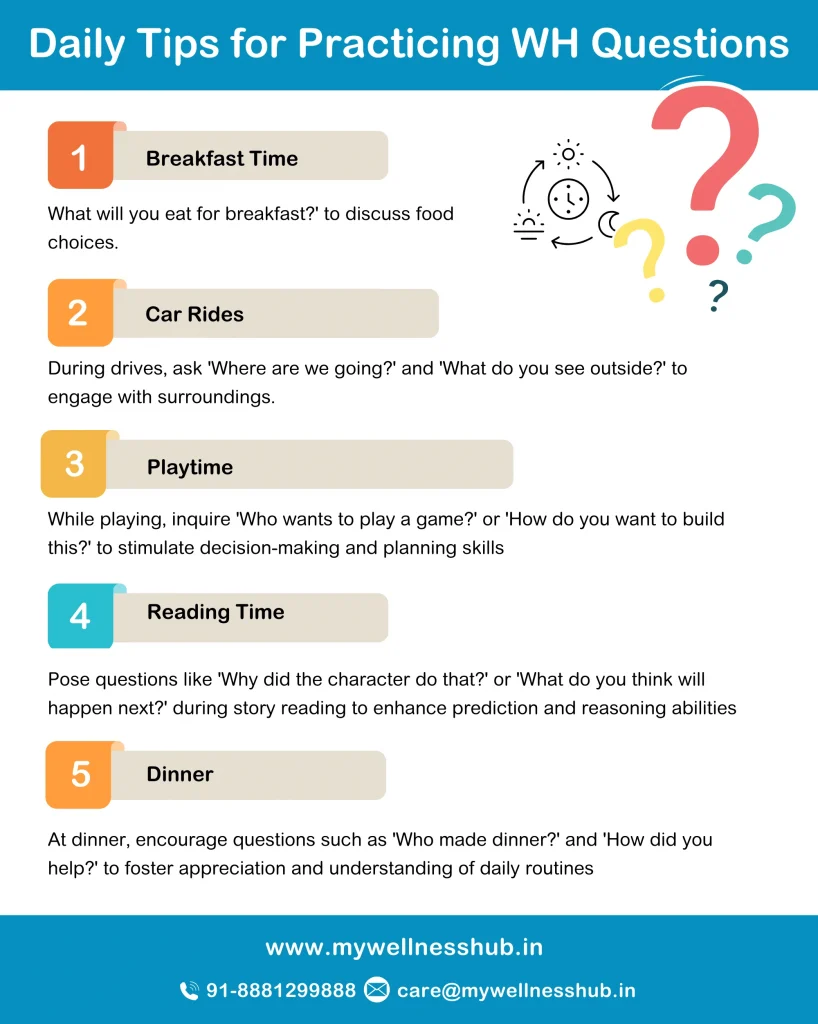
Incorporating WH questions into daily conversations is an effective way to reinforce their use:
- Routine Questions: During daily routines, ask questions like, “What shall we wear today?” or “Who wants breakfast?”
- Reflective Questions: After an activity or event, discuss it by asking questions such as, “What was your favorite part?” or “How did that make you feel?”
- Encourage Their Questions: Prompt your child to ask their own WH questions during conversations. This not only practices their use but also encourages them to think critically about their surroundings.
Also Read: WH Questions for Kids: A Simple Guide to Teaching and Learning
The Role of Parents and Educators
Parents and educators play a crucial role in teaching children how to use WH questions, enhancing their language skills. Here’s how you can effectively use resources from mywellnesshub to support this learning process:
- Use Available Resources: Mywellnesshub provides various tools such as games, storybooks, and apps that make learning WH questions fun and interactive. These can be incorporated into daily learning activities.
- Practice Consistently: Regular practice is key. Integrate WH questions into everyday conversations. For instance, ask, “What are you drawing?” or “Why do you like this game?” during activities.
- Positive Reinforcement: Always encourage and praise correct answers. If a child struggles, gently guide them to the correct response. This builds their confidence and mastery over time.
- Work Together: Communication between educators and parents is vital. Sharing insights about a child’s progress can help tailor learning activities at home to reinforce what is taught in school.
- Adapt to the Child’s Needs: Choose activities from mywellnesshub that best match the child’s interests and learning pace. This personalized approach keeps learning engaging and effective.
Success Stories: Real Outcomes with WH Questions
The impact of WH questions on language development is evident in the numerous success stories shared by users of Wellness Hub. These real-life examples demonstrate how effective these simple tools can be in enhancing communication skills in children. Here are a few anecdotes and testimonials that highlight these achievements:
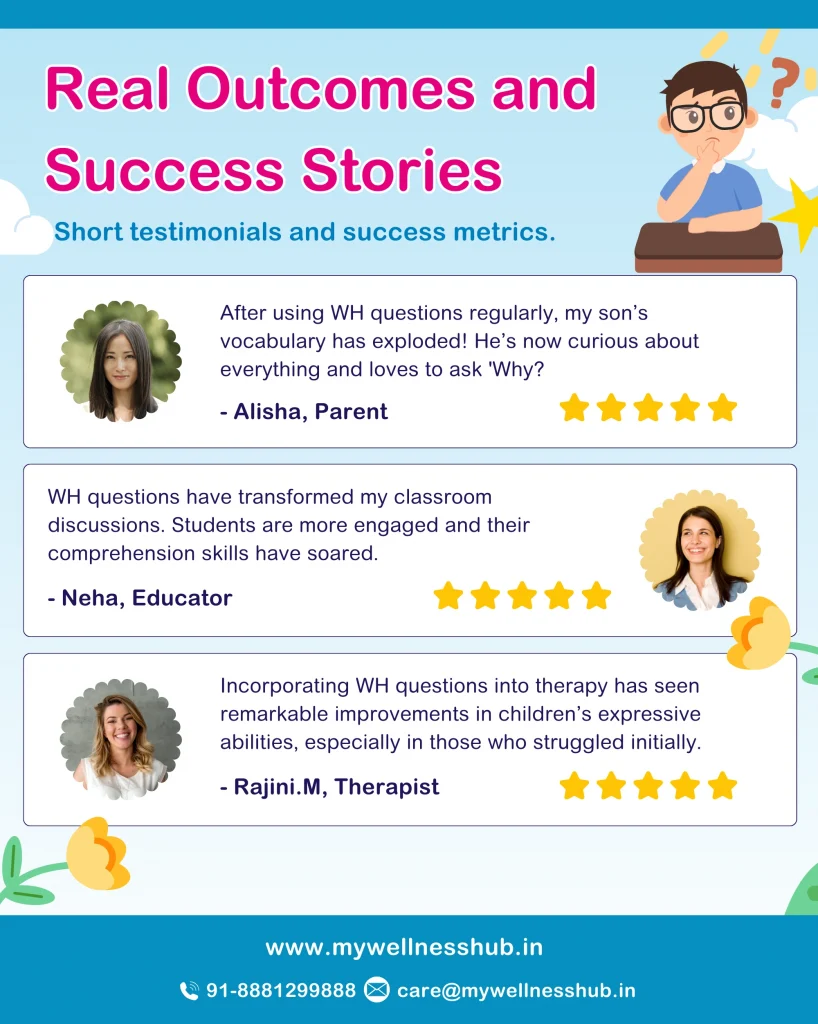
- Emma’s Journey: At just three years old, Emma struggled with forming full sentences. Her parents began using interactive WH question games from mywellnesshub during her daily routines. Within months, Emma was not only answering questions more confidently but also asking her own. Her mother shared, “It’s amazing to see her initiate conversations and express herself so clearly now!”
- Lucas’ Improvement: Lucas, a preschooler with delayed speech development, used our WH question storybooks extensively. His speech therapist noted significant improvements in his ability to construct complex sentences and understand story contexts. His father mentioned, “Lucas is more curious than ever, always asking ‘Why?’ and ‘How?’ about everything he sees!”
- A Teacher’s Perspective: Mrs. Johnson, a kindergarten teacher, incorporated mywellnesshub’s WH question resources into her classroom. She observed notable improvements in her students’ engagement and language skills. “The children love the role-playing games. They learn to think on their feet and expand their vocabulary every day,” she reports.
Conclusion
WH questions are key to boosting your child’s language skills. By using these simple yet effective tools, you can enhance their communication and understanding. Visit Wellness Hub to explore engaging resources that make learning fun and effective. Join countless parents and educators who have seen real improvements in children’s language abilities with our interactive games and guides. Start your child’s journey to better language skills today and witness the incredible growth firsthand. Discover how our resources can help at Wellness Hub. Let’s make learning exciting together!
Frequently Asked Questions:
1. What are WH questions?
WH questions are queries that begin with the words Who, What, When, Where, Why, and How. They are essential in language learning as they require more than simple yes or no answers and encourage children to provide detailed responses, which help in developing their language skills and cognitive abilities.
2. Why are WH questions important for children?
WH questions are crucial because they stimulate children’s curiosity, improve their listening and comprehension skills, and enhance their ability to form complex sentences. These skills are fundamental to academic success and effective communication, helping children better understand and interact with the world around them.
3. How can I teach WH questions to my toddler?
Begin by introducing WH questions during everyday activities. For instance, while looking at a book with your child, you might point to an animal and ask, “What is this?” or during a walk, you could ask, “Where is the dog?” This method helps toddlers associate questions with their contexts, making it easier for them to understand and answer.
4. What are some fun activities to teach kids WH questions?
Engaging activities like scavenger hunts using “Where” questions to find objects around the house, or creating simple stories together and asking “What,” “Why,” and “How” questions about the story’s events and characters can make learning both fun and educational. These activities encourage active participation and help children practice using WH questions in varied scenarios.
5. Can WH questions improve my child’s school performance?
Absolutely. Regular practice with WH questions enhances verbal and cognitive skills, such as vocabulary, comprehension, and critical thinking, all of which are directly linked to improved academic performance. Children become better at following instructions, solving problems, and expressing their thoughts clearly.
6. How often should I practice WH questions with my child?
Integrating WH questions into daily routines is the best approach. Whether it’s during mealtime, playtime, or while reading a book, regularly prompting your child with these questions helps them become more natural and comfortable in using language to think and respond.
7. What resources does Wellness hub offer for WH questions?
Wellness Hub provides a variety of resources tailored to teaching WH questions, including interactive games that simulate real-life situations, digital storybooks that prompt children to answer WH questions about the narrative, and apps designed to practice language skills in a playful and engaging manner.
8. At what age should I start teaching WH questions to my child?
You can start as early as two years old with simple questions that match their developmental stage. As your child grows and their understanding deepens, you can gradually introduce more complex questions that challenge them to think critically and express themselves more fully.
9. How do WH questions help with a child’s language therapy?
In language therapy, WH questions are used to assess and develop a child’s language abilities. They help therapists identify areas where a child may need improvement, such as vocabulary building, sentence structure, or narrative skills, and provide targeted exercises that address these needs.
10. Where can I find more tips on using WH questions with my child?
For a comprehensive guide on effectively using WH questions to enhance your child’s language development, visit Wellness Hub. Our site offers a wealth of tips, step-by-step guides, and educational resources that can help you support your child’s communication skills effectively.
About the Author:
Rajini Darugupally
M.Sc., Speech-Language Pathologist (9+ years of experience)
Rajini is a passionate and dedicated Speech-Language Pathologist with over 9+ years of experience, specializing in both developmental speech and language disorders in children and rehabilitation in adults. Driven by a desire to empower each individual to find their voice, Rajini brings a wealth of experience and a warm, genuine approach to therapy. Currently, at Wellness Hub, she thrives in a team environment that values innovation, compassion, and achieving results for their clients.
Book your Free Consultation Today
Parent/Caregiver Info:
Client’s Details:
* Error Message




